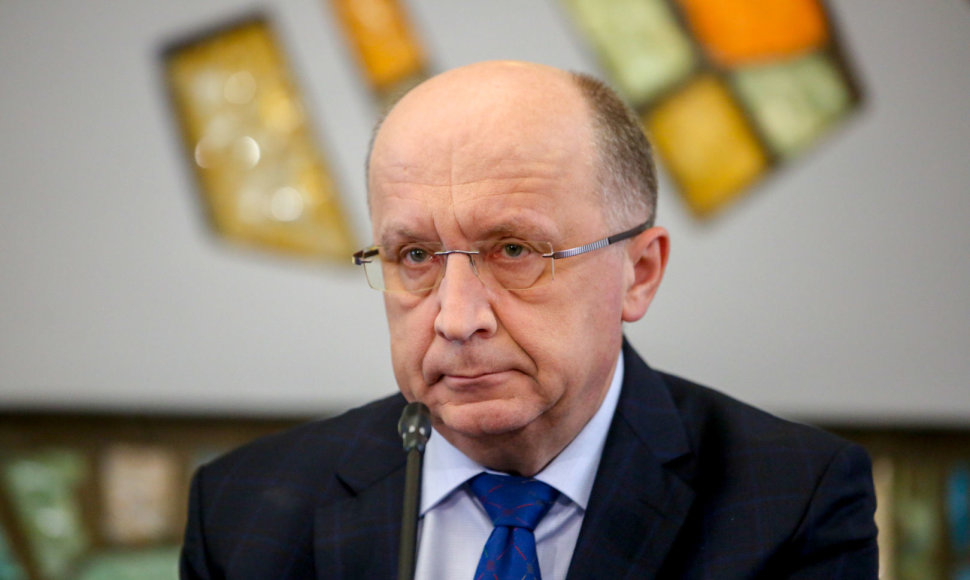I am guilty of naivete - I believed that in the organization defending values of human rights, rule of law and democracy elections can only be transparent and democratic. However, as it became obvious in the process, the Kremlin succeeded to convince some big Western European capitals, that I have an "unbalanced approach towards Russia", and without much ado, I was eliminated from the race. Well, the two remaining candidates for the position - the Belgian and the Croatian - must be demonstrating a "well-balanced approach".
My naivete did not cost me much. However, it helped me realize how much naivete remains in some big capitals of Western Europe. And it may cost dearly for the whole of Europe.
Already then, as I was being eliminated from the race without the Kremlin hiding its efforts towards this end, it was clear that such selection (rather than election) of candidates for the top position in the CoE is part of a bigger play. The play is being directed mostly from Paris, as France took over the chairmanship of the CoE Committee of Ministers since May. The play aimed to enable the unconditional return of full rights to Russia in the CoE and the Parliamentary Assembly (PACE). The rights were suspended by the decision of the PACE after Russia attacked Ukraine and occupied Crimea. So, Paris and at least a part of Berlin (the MAF controlled by social democrats) decided to absolute the Kremlin without any conditions, even without a demand to release of the Ukrainian sailors. They argue that the CoE must be a place of "dialogue with Russia", not the institution of sanctions. Such dialogue is needed for the people of Russia, as they retain access to the CoE legal instruments to defend their human rights, they say.
The important question of how to help the Russians to defend their rights against the oppressive Putin regime has no easy answers. However, letting Putin utilize the naivete of the Western leaders and allowing him with the help of the West to hurt and destroy the CoE authority, is least helpful.
The CoE is a very important organization - the European Court of Human Rights, the Human Rights Commissioner, the Venice Commission, the monitoring instruments - all these instruments rely on the moral authority of the CoE. This way, the fundament of the post-war European value system was created. It helped to safeguard and develop the area of peace and democracy in the European continent. If the authority crumbles, so crumbles the institutions, and, eventually, the CoE itself.
The threat to the future of the CoE lies in the persistent naivete of the Western leaders in their relations with Putin and a superficial understanding of the Western strategic obligations towards the future of Russia. If the understanding of such an obligation would be deeper, Western Europe would have a clear strategy of longer-term relations with Russia. In this strategy, the Western democracies would raise the most profound question - how the West can help Russia to transform into a Western-style democracy. With such a strategy, there would be less naivete, tempting Western Europe to sacrifice the authority of the CoE for the sake of "dialogue with Putin".
What is truly necessary for the future of Russia (not Putin), is adherence to principles, keeping up the standards of democracy and human rights. This way, the West would not only defend and strengthen the authority of the CoE, but it would also demonstrate to the Russian people that the West does not tolerate Putin's behaviour. The West needs a dialogue, but not with Putin. It has to build a dialogue with the people of Russia. For that, it has to demonstrate credibly that there will be no justification for Putin's aggression and, at the same time, to show a future of Western-Russian relations, which would be possible to build if Russia returns on the path of values of democracy and European standards of conduct in her neighbourhood.
An example of Ukraine's success in European integration would be also very helpful for the future of Russia. Putin is countering Ukraine's success by all means, most notably, by starting the aggression against Ukraine that already took thousands of lives. But also, Ukraine's European success depends on trust in the West. Ukrainians have to believe that the West can sustain a strong European value system and will not abandon it out of naivete or pragmatic calculations for the sake of "dialogue with Putin".
Our countries joined the CoE in hope, that the CoE will defend the fundamental values of human rights and democracy. Not only Ukrainians but also many other Europeans truly believe in the CoE, however, this belief is shattered. And this will be the cost of the prolonged Western naivete.
It is hard to say, whether it is still not too late to stop the implications of this naivete. But I want to believe there is a grain of truth in the saying - "every cloud has a silver lining". I hope, that this will be the last defeat of the Western naivete for Putin's pleasure. This also may be a necessary price to pay, so that a serious Western strategy towards Russia can be finally born. Such a strategy would aim to build long-term effective instruments to help Russia and Russian people return to the European standards, instead of keeping naive "dialogue with Putin".
It is a vital interest for Lithuania that such Western strategy would be born involving both sides of the Atlantic and as soon as possible.
Mr. Andrius KUBILIUS is an elected Member of the European Parliament and former Prime Minister of Lithuania.












